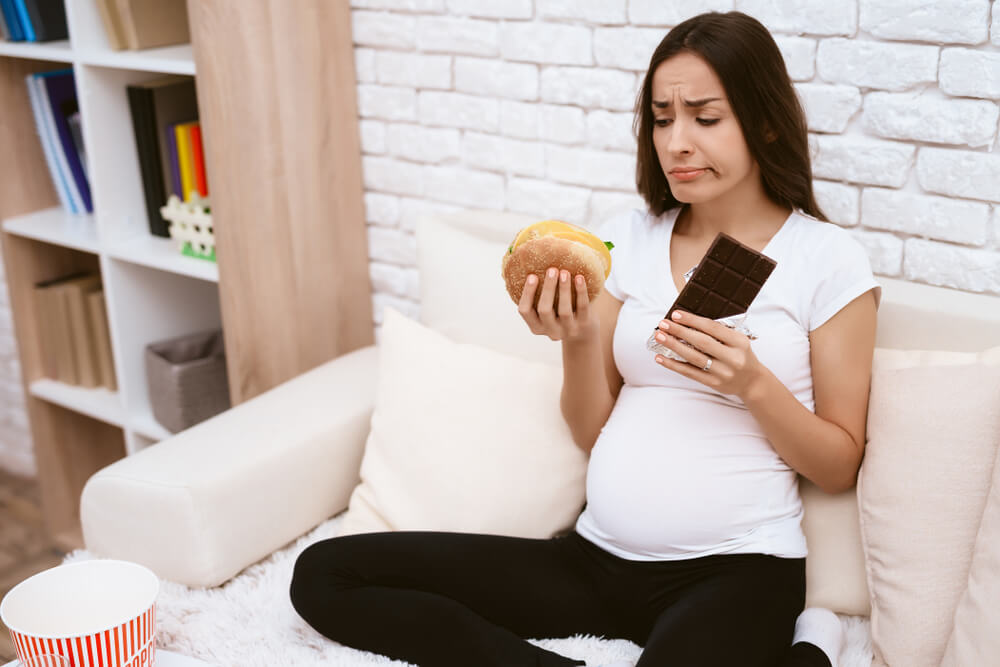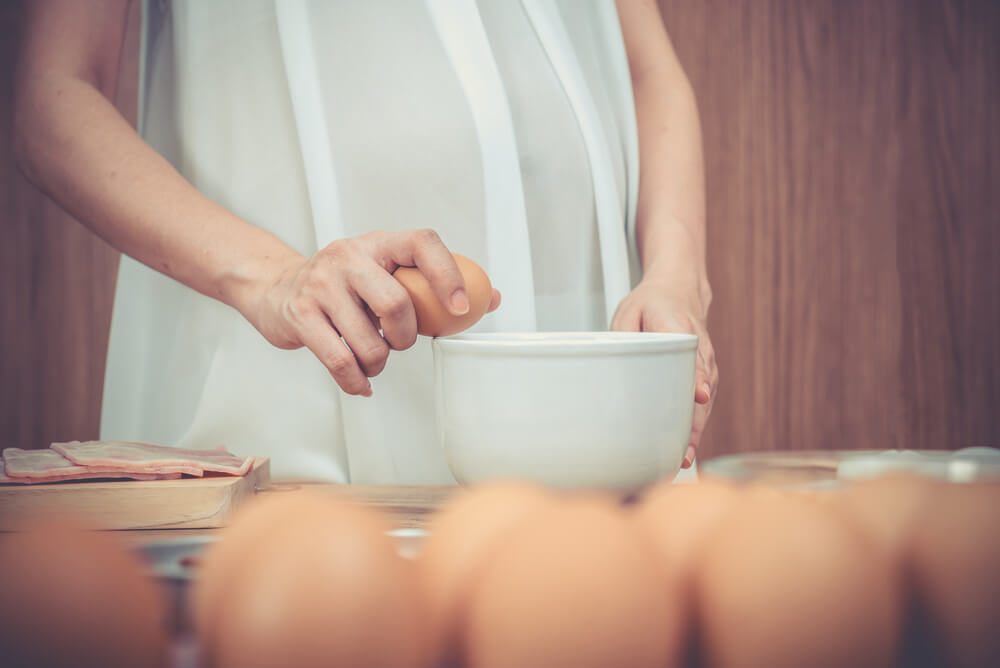Pregnancy might be exciting, but it can also be difficult. To ensure everything goes well, women are advised to change their diets, among other things. Cutting out caffeine, alcohol, raw, and spicy food while pregnant is necessary for your own health and the health of your baby. Coming up with a new diet can be overwhelming, as it seems like you can’t eat anything anymore. Luckily, we’ve come up with this article to help you stay clear of dangerous foods and ease into the new diet.
Furthermore, our childbirth classes in Miami can teach you more about what you can expect to set your mind at ease.
1. Alcohol: Can Even a Glass of Wine Hurt?
By now, we all know that drinks during pregnancy are harmful to the baby’s health. Drinking while pregnant can increase your risk of miscarriage and stillbirth, alongside causing other physical and mental deformities in your baby.
Nine months can be a long time to go without any kind of drinks during pregnancy, especially if social gatherings or holidays are coming up, making it seem okay to enjoy just one drink on occasion.
However, no level of alcohol has been determined to be safe for pregnant women. While the impact of one glass may not be fatal, even a tiny amount of alcohol can deter your baby’s brain development.
2. Processed and Spicy Food: Can I Still Enjoy a Burger?

While a pregnancy diet menu should include nutrient-rich foods, it’s a myth that you’re eating for two and need to double your calorie intake. This is especially true if those calories come from processed junk food.
A takeout burger might be an easily-digestible option, but it’s full of nothing but sugar, empty calories, and added fats. Whole grains, starchy veggies, beans, and other iron-rich foods, are also full of healthy fats, fiber, and protein— all things you and your baby need.
Eating too much junk food during pregnancy can contribute to excessive weight gain, which can, in turn, lead to birth and pregnancy complications. Additionally, a lot of spicy food while pregnant may cause discomfort and stomach issues.
Of course, an occasional burger or bite of spicy food while pregnant won’t do any harm. Just make sure not to increase your calories by more than 450 a day in the third trimester.
3. Unwashed Produce: Can It Make It To My Pregnancy Diet Menu?
Whether you buy your produce at the supermarket, a farmer’s market, or grow it at home, you should never consume it without washing it first. The surface of fruits and veggies can contain Toxoplasma, Listeria, Salmonella, and E Coli, among other bacteria.
Iron-rich foods for pregnancy definitely include fruits and veggies, though. Simply make sure that they’re thoroughly washed to minimize the risk of bacteria. It’s also a good idea to peel your produce before eating it to be extra safe.
4. Caffeine: Can I Still Have My Morning Cup?
Those who are used to enjoying multiple coffees a day will need to cut down on their intake during pregnancy. Babies don’t have the enzyme needed to metabolize caffeine yet, so it can build up pretty easily and potentially stunt fetal growth. Low birth weight is also a possible consequence of increasing the risk of chronic diseases in childhood and infant death.
The good news is that you don’t have to avoid caffeine completely— you can still enjoy caffeinated drinks during pregnancy. Make sure to monitor your intake, so it doesn’t pass the 200mg a day mark.
5. Undercooked Meat: How Should I Prepare My Meat?
Having minced meat, pork, poultry, and steak when pregnant mayl sound delicious, but they’re not always the best choices. This is because undercooked and processed meat can contain harmful bacteria that can severely impact your baby’s health.
Deli meats, lunch meats, and things like hot dogs should especially be avoided because they’re more prone to cross-contamination during storage and processing.
The good news is you can still have grilled burgers, poultry, and steak when pregnant. In the first case, just make sure that the meat is well-done. Preferably, prepare it only at home so you can be sure everything is up to code.
In the latter case, lamb, veal, ribeye, and steak when pregnant are considered safe for consumption even when they’re not well-done. However, you should still make sure that it’s completely cooked from the outside and that you’re dealing with whole cut or uncut meats.
6. Seafood: Should I Avoid More Than Sushi?
Raw fish can contain parasitic infections such as Vibro, Listeria, and Salmonella, which is why pregnant women are most often advised to take sushi off their pregnancy diet menu. However, this isn’t the only type of seafood that can cause health concerns.
Other seafood such as shellfish, orange roughy, swordfish, shark, marlin, tuna, king mackerel, and tilefish should also be avoided. While they might be cooked, these types of fish still contain high levels of mercury which is especially toxic to pregnant women.
Babies exposed to high levels of mercury have higher chances of dealing with developmental issues, even if they’re exposed to it in low amounts.
The good news is that there are other types of fish that can be consumed safely. These include cod, flounder, anchovies, haddock, trout, tilapia, and salmon. Oysters are even on the list for the tastiest iron-rich foods for pregnancy.
7. Raw Eggs: Can I Still Have Them?

Raw eggs can be found in a number of different homemade dishes. Cake icings, ice cream, salad dressings, mayonnaise, and hollandaise sauce are all made with them and can be potentially harmful to your baby’s health.
Even common breakfast meals like poached eggs or lightly scrambled eggs should be avoided. This is because raw eggs may contain Salmonella.
It’s even more dangerous for pregnant women as it can cause premature birth or stillbirth in some cases.
To stay on the safe side, always cook your eggs thoroughly. If you get a store-bought item that contains eggs, make sure the label says the product contains pasteurized eggs only.
8. Unpasteurized Dairy: Is This a Concern?
Protein and other vitamins you get from dairy are all important for the health of your pregnancy. However, unpasteurized cheese, milk, and soft-ripened cheeses can contain a number of different bacteria. E Coli, campylobacter, Listeria, and Salmonella are the most common examples.
To avoid any possible harmful consequences for you and your baby, it’s best to stick to only pasteurized dairy, as the process of pasteurization kills all bacteria.
Conclusion
Pregnancy requires a lot of sacrifices foodwise, but nothing is impossible with some willpower and a good plan. Understanding how your diet can affect your health and your baby can make it easier to stick to the new regime.
What do you think about having to avoid these foods and drinks? What’s the hardest thing to give up? Book your next appointment with our online booking tool and let us know what you think in person.




